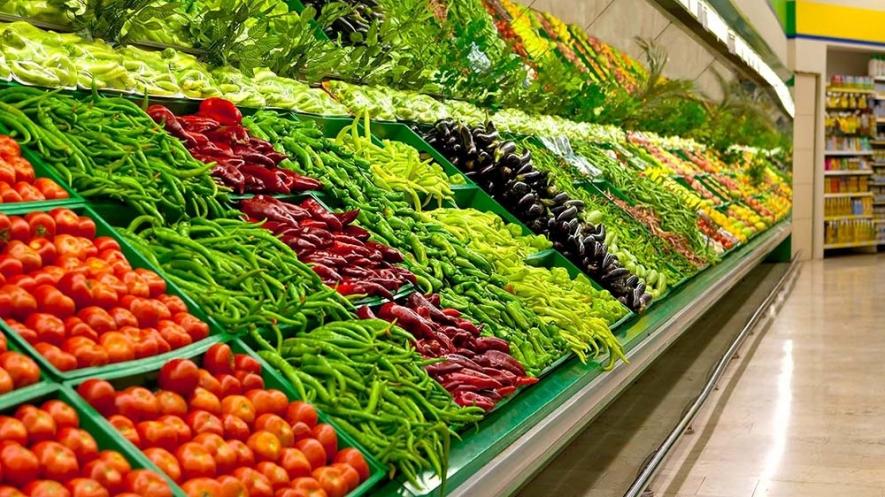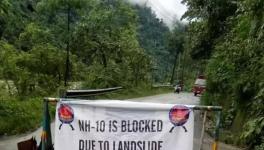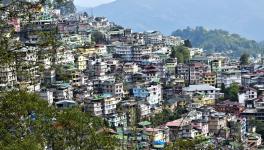Sikkim's Vegetable Ban: An Ill-Conceived Waste of Food

Image Courtesy: Franchise India
In an unprecedented move, around ten metric tonnes worth of non-organic vegetables were buried in a landfill near Rangpo, East Sikkim. This ‘disposal’ of perfectly edible food was done as per the ban on non-organic vegetables that got implemented from April 1. The notification empowered the ‘enforcement officers’ to seize non-organic agricultural and horticultural commodities meant for sale in Sikkim. According to another notification, issued on March 10, the enforcement officers had to compost the seized non-organic produce or dispose of them in a landfill.
The Horticulture Department has stated that they will be coming up with a mechanism to turn away vehicles carrying non-organic vegetables.
The ban has faced criticism from various quarters. The wholesale traders at the Siliguri Regulated Market have voiced their discontent. Knowing that there are certain items that the ban has not affected like onions and potatoes, the traders have threatened to not sell these items if their destination is Sikkim. The main opposition party in the state, the Sikkim Krantikari Morcha (SKM) did not waste any time in criticising the plan to ban the sale of non-organic produce. The SKM has demanded that the ban be rolled-back and a detailed study be conducted to check the viability of the move. They claimed that the government’s record of registered organic farmers is not enough, as many could be subsistence level farmers who only sell their surplus. They also raised concern for the daily wage earners and casual workers for whom the organically grown produce would be astronomically expensive.
Another state political party, the Sikkim United Front (SUF) criticised the implementation of the ban. They demanded that the government subsidise the organic produce sold in the state for the welfare of the consumers and build more cold storage facilities as well.
The government has, on the other hand, been trumpeting the ban on the basis of the health of the people and the environment. The Horticulture Secretary, Khorlo Bhutia, stated that the government was working on procurement as well as transport of ‘organic vegetables’ from Farmers Producers Organisations (FPO) in the state. A meeting chaired by the state Agriculture and Horticulture Minister, Somnath Poudyal concluded that there was sufficient quantity of organic produce in the state to meet the present requirements. He also assured the vendors at Rangpo and Singtam that the vegetable supply was sufficient, and that they would be transported by the Sikkim State Cooperative Supply and Marketing Federation Ltd. (SIMFED). The ruling Sikkim Democratic Front (SDF) went a step further calling the ban ‘progressive’. They maintained that the ban was done keeping in mind the best interests of the farmers and the people of Sikkim. They stated that the ban was to ensure Sikkim’s food self-sufficiency, as well as to benefit the local farmers in the state.
However, a week after the ban commenced, the situation began to look bleak. Due to acute shortages, the ban was lifted on non-organic carrots, green chillies and tomatoes. The All Sikkim Traders Association (ASTA) declared that they would bring in all the vegetables that were in short supply. The ASTA vice president Lakpa Sherpa told the Sikkim Express that apart from peas, beans and leafy vegetables, all other vegetables were in short supply.
Apart from the obviously disgusting waste of perfectly edible food, the ban’s implementation is wholly impractical. Firstly, irrigation is a problem for commercial farming, irrespective of whether organic or not. Since the 2011 earthquake, Sikkim has seen a rise in the number of mountain streams drying up, thus aggravating a growing water shortage in the state. Secondly, monsoons are getting shorter and more intense, increasing the risk of landslides which no doubt can devastate crops. Thirdly, a phased implementation based on actual study and putting in place the transport machinery well before the ‘ban’ would have greatly reduced the ‘teething problems’ referred to by the state administration.
The SDF claimed that this move benefits the farmers of Sikkim, and that money can go to the farmers instead of outside the state. However, employment generation is probably one of the factors the government took into consideration. In 2016, Sikkim had an unemployment rate of 18.1 percent, the second highest in the country after Tripura. Perhaps the government thought that the shortage and price rise would prompt people to enter this lucrative organic produce trade. Another possibility could be that the CM is after another ‘green’ award. Maneka Gandhi had reportedly visited Sikkim in March and said that she had requested the CM to help convert the whole of India into an organic farming country.
Why the government took such a drastic step, which is almost akin to notebandi, may be gauged by the SDF’s official position. There is no doubt that the health claims are not quite sound. However, the move is certainly a protectionist policy, possibly with an eye on 2019.
Get the latest reports & analysis with people's perspective on Protests, movements & deep analytical videos, discussions of the current affairs in your Telegram app. Subscribe to NewsClick's Telegram channel & get Real-Time updates on stories, as they get published on our website.
























